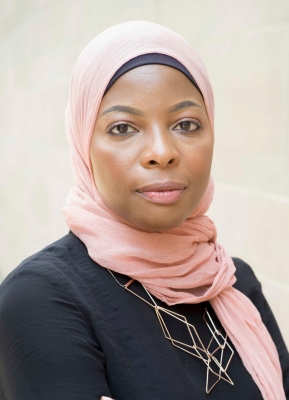By: Hannah Schroer, Managing Editor of Tolle Lege, Vol. 66

Villanova University Charles Widger School of Law held its 43rd annual Donald A. Giannella Memorial Lecture on October 22, 2020. The lecture, sponsored by the Eleanor H. McCullen Center for Law, Religion and Public Policy, hosted Professor Intisar A. Rabb, JD, PHD.
Professor Rabb’s presentation, Interpreting Islamic Law, focused on the thirteenth century judicial overhaul of Islamic law by the Baibars I, the first Mamluk sultan of Egypt and Syria.
Three major changes to the court ensued from the reform:
- The realm transitioned from one chief qadi, or judge, to four chief judgeships representing each of the four major schools of Islamic law;
- These judges were required to restrict their legal interpretation to the majority opinion amongst scholars of the legal school; and
- Cases were directed to school-affiliated courts given what today would be called subject-matter jurisdiction over certain areas of law.
Historians hailed Baibars I’s judicial reform as momentous because of how it formed a new relationship between scholar-jurists and political authority. Having the four schools represented in the courts is like requiring justices representing originalist, textualist, and pragmatistist schools on the Supreme Court, Rabb said.
Rabb noted one change frequently overlooked was how the reform affected legal canons themselves. Islamic legal canons existed long before the reform in advisory opinions, legal treatises, and literature. But following the reform, jurists from each legal school amassed these statements of interpretive principles into collections organized by hierarchy.
“There was just this explosive growth on writings on legal canons—collections of them,” Rabb said.
Because each school separated and prioritized legal canons differently, the codification of these legal canons offers a window into shifting conceptions of Islamic law and its values, Rabb said.
About the Speaker
Intisar A. Rabb is a Professor of Law, a Professor of History, and the faculty director of the Program in Islamic Law at Harvard Law School. She has held appointments as a Susan S. and Kenneth L. Wallach Professor at the Radcliffe Institute for Advanced Study, as an Associate Professor at NYU Department of Middle Eastern and Islamic Studies and at NYU Law School, and as an Assistant Professor at Boston College Law School. She previously served as a law clerk for Judge Thomas L. Ambro of the United States Court of Appeals for the Third Circuit, as a Temple Bar Fellow in London with the American Inns of Court, and as a Carnegie Scholar for her work on contemporary Islamic law.
In 2015, she launched SHARIAsource—an online portal designed to provide universal access to the world’s information on Islamic law and history, and to facilitate new research with the use of AI tools—in partnership and collaboration with many scholars and institutions.
Professor Rabb has published on Islamic law in historical and modern contexts, including the monograph, Doubt in Islamic Law (Cambridge University Press 2015), the edited volumes, Justice and Leadership in Early Islamic Courts (with Abigail Balbale, Harvard University Press, 2017) and Law and Tradition in Classical Islamic Thought (with Michael Cook et al., Palgrave 2013). She has also published numerous articles on Islamic constitutionalism, Islamic legal canons, and on the early history of the Qur’an text.
She received a BA from Georgetown University, a JD from Yale Law School, and an MA and PhD from Princeton University.
